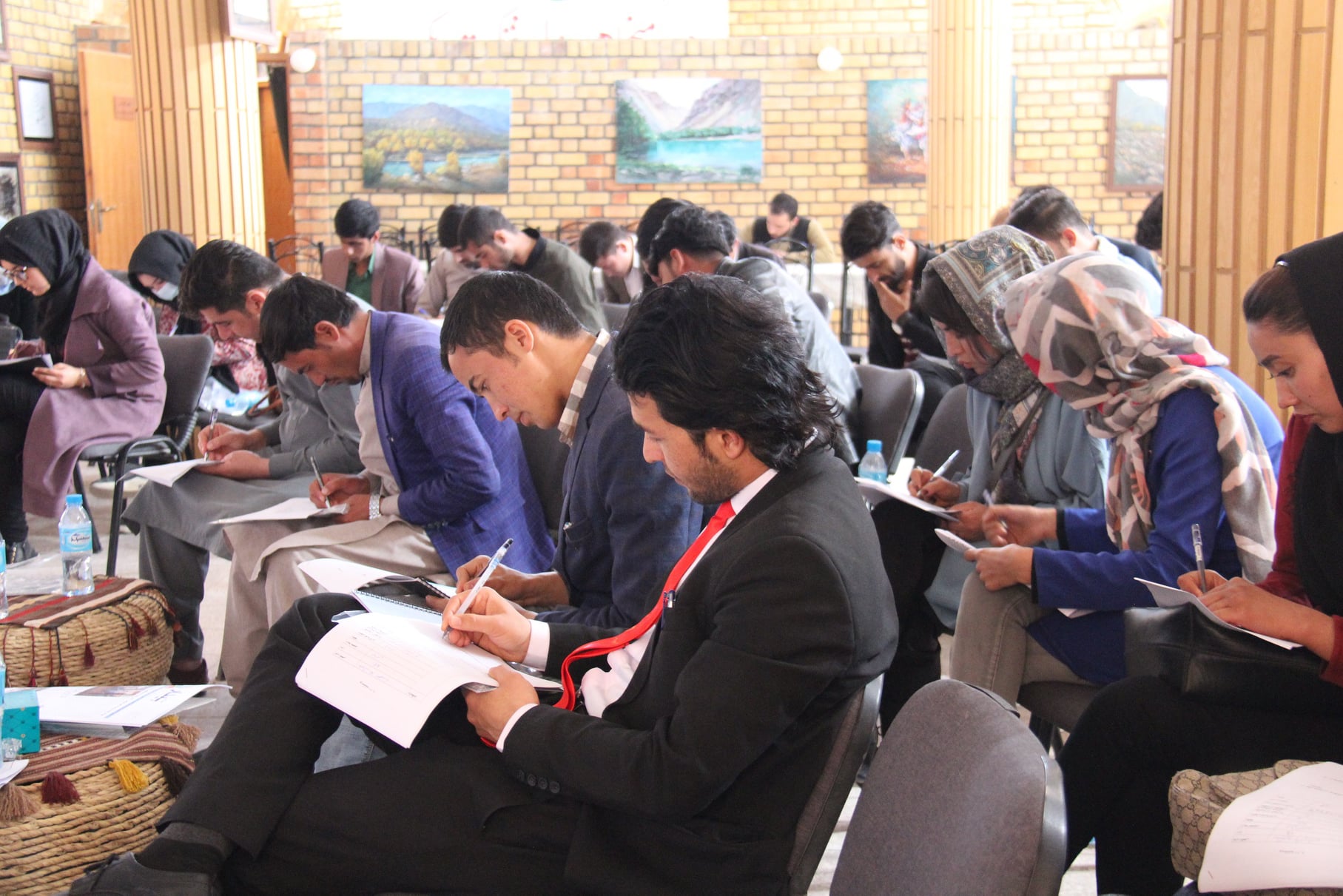
Mualana Peace House (Mediothek Balkh) organized a provincial youth dialogue forum in Mazar-e-Sharif on 11.02.2021 in which more than 65 participants, both young men and women, representatives of local government agencies, young peace makers, leaders of youth groups, university students and youths of different backgrounds and members of Mediothek Youth Network participated.
Mohammad Saber Naqshbandi, coordinator of Mualana Mualana Peace House (Mediothek Balkh) welcomed the participants and opened the event by talking about Mediothek Afghanistan wide ranging activities for youth empowerment and peacebuilding in recent years, such as numerous conflict resolution workshops, peace ambassadors of Afghanistan, Pakistan and Tajikistan, youth as peace mobilizers etc. and encouraged the participants to actively participate in all activities of the dialogue forum today.
Mati-ur-Rehman Karimi, director of Balkh Information and Culture Department, welcomed the dialogue forum, calling it a step towards peacebuilding urging participants to share what they are going to learn in this dialogue today with their peers and other youths in their communities.
In the first part of the dialogue forum which entailed lectures and presentation, Taqi Vahedi, a writer, researcher, and social activist, spoke about peacebuilding and conflict from a theoretical standpoint citing peace and conflict expert that the main sources of most of conflicts and violence in the world is the efforts of individuals to gain power, wealth and social status. “It is very crucial for young peace-builders to gain knowledge and acquire a set of skills in order to be effective peace-maker,” added Mr. Vahedi.
He pointed out that in democratic societies obtaining these three scare resources (power, wealth and social status) can be done through peaceful means, stressing that in democratic societies, people access these resources through cooperation and constructive competition and not by resorting to violence. He called on the youth to take the lead in observing the rule of gaining power, position and social prestige, and if access is not possible in this way, they should change the rule of the game and that the youth have the responsibility of promoting non-violent ways for resolving conflict.
Suleiman Qayyumi, university lecturer and peace activist, talked about negative and positive peace, stating that the absence of war and direct violence is negative peace while the absence of violence in all its forms including structural and cultural is positive peace and this is what we all and especially young people and the participants of this provincial forum must work for.
The university lecturer stressed the importance of youth participation in peace processes at all levels given their potential to bringing change, their ability and energy, skills and knowledge, given that youth are a motivating force, voluntary interest in peacebuilding and familiarity with the language of technology and science. But he also raised concerns about the less than satisfactory participation and representation of Afghan youth in the peace process adding that this is due to the politicization of the peace process, the lack of a single address for youth, poverty and unemployment, brain drain, as well as the government’s reluctance to involve young people in the peace process and this must change and such programs and dialogues provide opportunities for changing the status que and engaging youth in national provinces including the peace process.
A presentation by a participant shed light on the previous programs and events organized in the framework of the project and laid out the scene for the current dialogue, expectation of participants and their future roles and responsibilities.
In the second part of the one-day dialogue forum, participants were divided into several working groups to discuss a set for well-defined and pre-selected topics including obstacles to peace in Afghanistan (youth perspectives), the characteristics of a just peace, and the role of neighboring countries in peace, youth’s role in peacebuilding and more. Each working presented the result of its work to the larger group for more discussion and further analysis. In the second and last of part of the dialogue form-Kabul, participants continued working through different working groups to discuss and analyze the challenges, opportunities and solutions that are available to youth. Each working group presented the results of their group work and a resolution was developed for further discussion and analysis.
The provincial dialogue forum is part of the project “Youth as Multipliers for Peace – Mobilization for and Participation in the Peace Process in Afghan Provinces”, funded by the German Federal Foreign Office.

